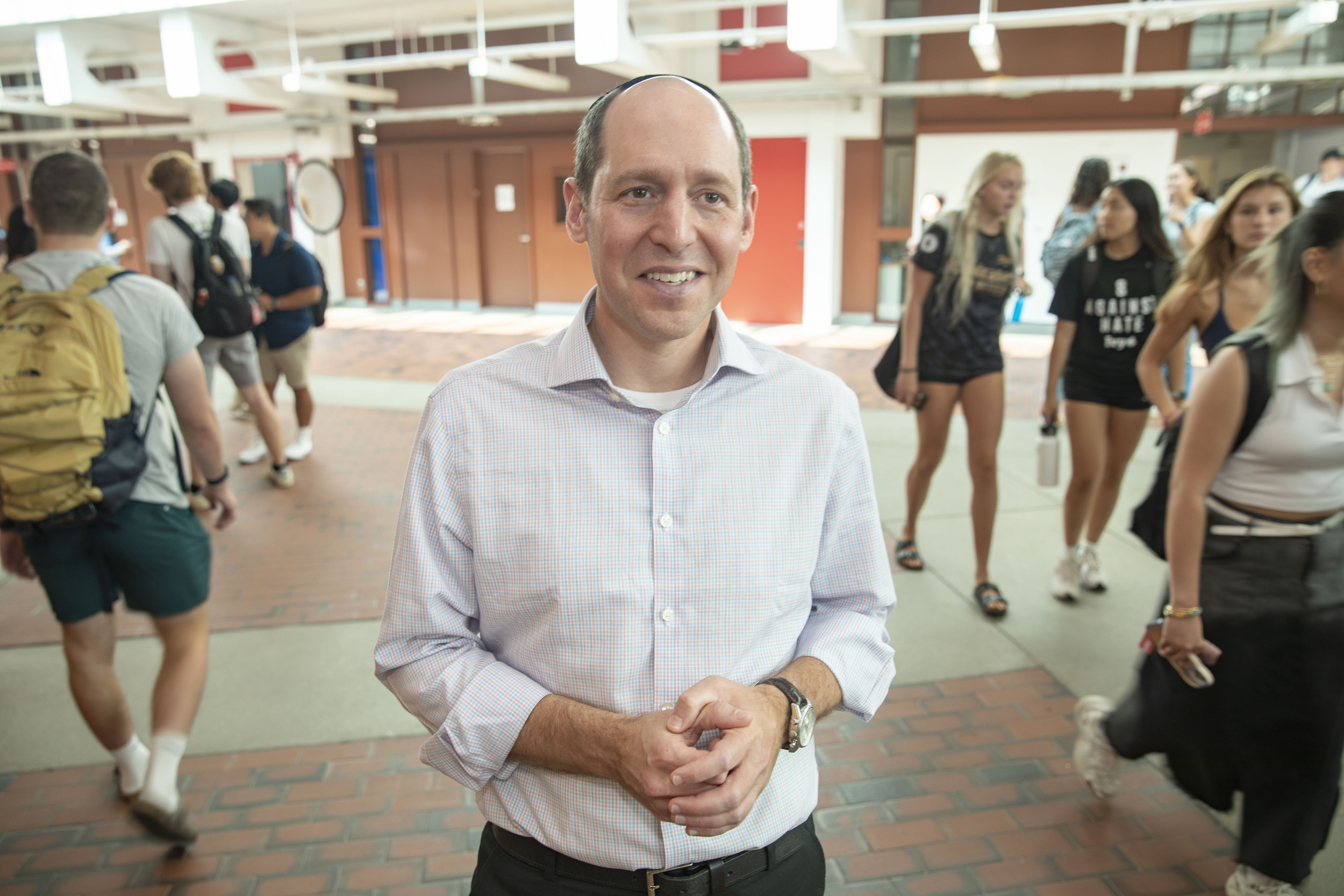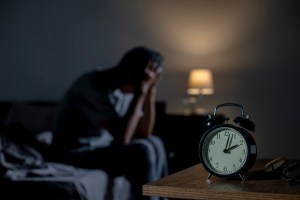You think you’re fighting your anxiety, but you’re making it worse

Psychologist David H. Rosmarin discusses his new book “Thriving with Anxiety.”
Kris Snibbe/Harvard Staff Photographer
We need to alter our response to the condition, says McLean psychologist whose new book explains where to start
The U.S. was an anxious nation before COVID and has seen levels rise even more in the past few years, especially among young people. David H. Rosmarin, an associate professor of psychology at Harvard Medical School and director of McLean’s Spirituality and Mental Health Program, has spent decades treating the disorder. We talked to him about his new book, “Thriving with Anxiety: 9 Tools to Make Your Anxiety Work for You,” out this month. The interview has been edited for clarity and length.
Q&A
David H. Rosmarin
GAZETTE: How harmful is the idea that a person should feel zero anxiety?
ROSMARIN: The biggest trigger for anxiety today is that we are apprehensive about the occurrence of anxiety itself — the minute we feel anxious, we get upset about it and think something’s wrong with us. That internal response increases the flow of adrenaline, which in turn causes a cascade of anxiety because the perceived threat has magnified.
We need to rework our relationship with anxiety. We need to expect that we will feel anxious at times. In fact, the more productive and successful we are, the more we need to expect to feel off-kilter. I’ll add that when we feel anxious, it’s unhelpful to fight it — that makes it worse. When the initial flow of adrenaline comes, it’s time to just accept. When we can do that, anxiety goes from being something we catastrophize about to nothing more than a few uncomfortable minutes. It’s the perception that anxiety is a disease that’s the problem — that belief is the root cause of our anxiety epidemic today, in my opinion.
GAZETTE: Your book is called “Thriving with Anxiety.” Can you elaborate on the title?
ROSMARIN: It’s uncanny to me how many successful people are often plagued with anxiety. I think this happens because anxiety can mobilize us into action, help us push forward in novel ways, and get ahead of issues before they occur. Anxiety can also help us to maintain awareness of our stressors and resources, and maintain balance — since it’s so uncomfortable, it’s a built-in warning system when we start to get overloaded. Again though, the starting point is to accept anxiety versus trying to squelch it whenever it occurs.
“In order to be emotionally vulnerable, one needs to be relaxed. Usually, such interactions need to be in person.”
GAZETTE: You talk in the book about exposure therapy. Is that one of the best approaches to anxiety?
ROSMARIN: It’s definitely a first-line treatment, but I think exposure therapy does more than just reduce our anxiety. The treatment involves facing one’s anxieties head-on. People embrace feelings that they’ve been running from for years, sometimes decades. Doing so inculcates the message that not only can I confront this elevator, flight, social situation, snake — whatever it is — but I can confront other challenges in my life. By confronting anxiety, we build resilience to face other life stressors.
GAZETTE: Your book offers strategies to break out of anxiety without having to go into care. What’s one you’d recommend?
ROSMARIN: Years ago, I was on a panel at Harvard College and the head of the Harvard Counseling Center at the time said something that was really eye-opening. He had worked on a study to look at the best predictors of wellness among Harvard College students. There was one key factor which accounted for more variance than anything else: “Do they have at least one friend that they can speak to openly about emotional concerns in their life?”
GAZETTE: So, having a confidant?
ROSMARIN: I think it’s more than that. All humans have weaknesses, struggles, and strain at times. To the extent that we can be vulnerable, open up to someone, and show them that we’re not perfect, we are, ironically, more likely to have emotional wellness. Harvard College is a highly competitive environment and I think our students struggle when they feel the need to be perfect 100 percent of the time. Along those lines, having anxiety can create great opportunities to deepen emotional connections to others. Opening up to others about our anxieties can protect us and help us thrive.
GAZETTE: Has that gotten harder with social media? The pictures that we present to the rest of the world are so curated and polished.
ROSMARIN: It definitely has, and for the reason you mentioned: impression management. But there’s another reason that is even more important: There’s much less in-person socialization today. Teens are less likely to go on dates and spend less time with friends. Most social interactions are pixelated, so it’s harder to open up to others. In order to be emotionally vulnerable, one needs to be relaxed. Usually, such interactions need to be in person. We need that hug or at least a pat on the back, then we can open up: “I’m having a hard time. Here’s what I’ve been dealing with recently.”







